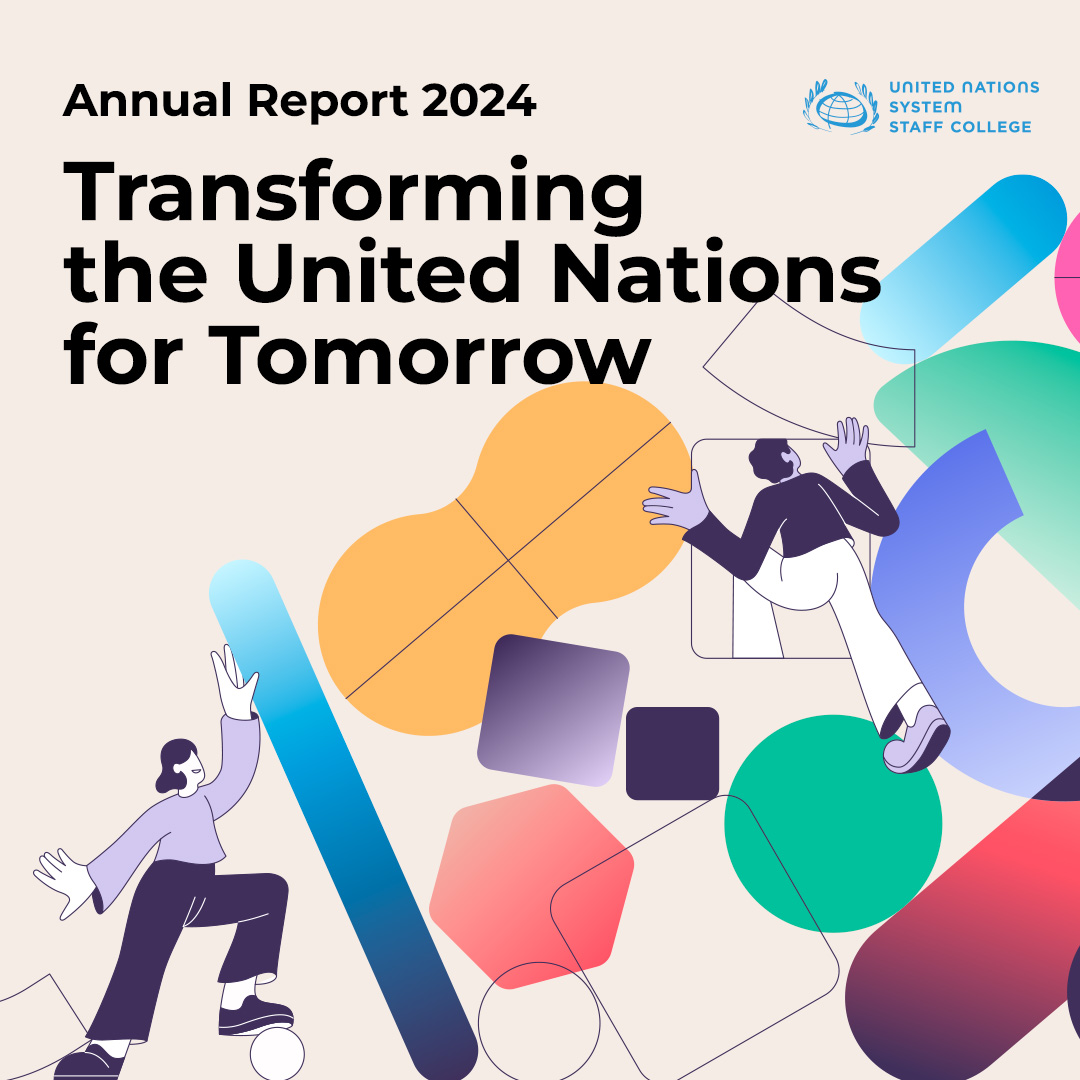


Innovation means turning challenges into opportunities to develop solutions that create lasting benefits for both people and the planet. To nurture innovation and foster a culture of creativity, it is essential to equip individuals with the right tools and frameworks to drive meaningful change.
The UN System Innovation Springboard Programme is UNSSC’s flagship initiative for developing hands-on innovation skills. Grounded in the UN Innovation Toolkit— endorsed by the Chief Executives Board for Coordination— this programme provides a practical, step-by-step blueprint for planning and facilitating innovation across roles and functions.
The programme breaks innovation down into actionable steps, from testing and experimentation to iteration and learning loops, and from effective communication to securing buy-in. By equipping participants with essential innovation skills, the programme supports the Secretary- General’s call to “do things differently and do different things.”
In 2024, participants engaged in hands-on learning, with UN personnel identifying and refining innovation projects that were specific to their areas of work. Participants leveraged insights from webinars, peer coaching, forum discussions, and curated readings to incorporate innovation methodologies into their work. Notably, 95 per cent of participants recommended the programme for its relevance and value, highlighting its effectiveness in enhancing their ability to innovate within the UN system.


UNHCR Field Security Officer, Sub-Office, Mazar-I-Sharif, Afghanistan
“This programme enhanced my ability to innovate security solutions, and strengthened my storytelling and pitching skills, enabling me to effectively communicate ideas and gain buy-in from senior managers. I expect to have a profound impact on my security work, specifically on how I will develop security strategies, manage security threats, mitigate risks, and implement security solutions to enhance UNHCR’s security posture and resilience commitment to stay and deliver in high-risk, volatile, and most challenging security environments globally. I highly recommend it to my colleagues who are looking to drive meaningful and sustainable change.”
Land is an essential natural resource, and conserving land is our shared responsibility. The land restoration agenda is a cornerstone of sustainable development, contributing to food security, climate resilience, and biodiversity.
Creating innovative ways to engage stakeholders in land restoration is essential not only to enhance awareness and understanding of land issues but also to empower diverse groups to contribute actively to conservation efforts. Engaging parliamentarians in this vital endeavour is crucial for advancing effective policies, robust legislation, and comprehensive national implementation strategies that promote sustainable land management and restoration efforts.
The Global Changemaker Academy for Parliamentarians (G-CAP), in collaboration with the G20 Global Land Initiative at the United Nations Convention to Combat Desertification, is an innovative platform that brings together national parliamentarians in support of the land restoration agenda. Through a variety of masterclasses, workshops and immersive learning experiences, the programme helps lawmakers craft and support more effective legislation at the national level, fostering innovative policymaking for land restoration.
By the end of 2024, G-CAP had trained nearly 60 lawmakers from around the globe, achieving a satisfaction rating of 5.5 out of 6. Participants gained skills to enact land sustainability policies, advancing both national and global conservation goals.

Hon. Member of Parliament, St. Vincent and the Grenadines
“I think this initiative by UNSSC is quite innovative, bringing politicians and technocrats together to address critical issues of land management. It allows for networking, sharing ideas globally, and reflecting deeply on critical issues beyond the day-to-day politics of our jurisdictions. G-CAP provides a platform to think critically and act meaningfully on pressing concerns. I'd encourage more parliamentarians to participate.”